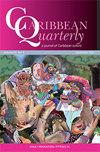Reinventing the Self
Q3 Arts and Humanities
引用次数: 0
Abstract
BORN IN 1932 IN AN IMPOVERISHED HINDU community of Trinidad, V.S. Naipaul moved to England in 1950, where he spent most of his life. As a writer of Indo-Caribbean origin, Naipaul has an important place in Caribbean literary history, which is haunted by colonialism, imperialism and neo-colonialism. Despite the fact that Naipaul claims not to adhere to any political principles in his work, his literature tends to become a form of resistance to colonial and postcolonial configurations across national and cultural borders. Scholars like Angus Richmund have criticised Naipaul for being “the mimic man”1 who merely documents colonial anxieties or insecurities in his work, although he may appear to be preoccupied with the predicament of the formerly colonised people in our postmodern world. His anti/heroes do not show an active resistance to the remnants of colonialism, but rather a passive one as they refuse to conform to the fantasies of the West. These fantasies are rooted in cultural othering, which appears to haunt his lonely and solitary characters who as a result tend to possess floating or fragmented identities. According to Min Zhou,重塑自我
1932年,V.S.奈保尔出生于特立尼达岛一个人迹罕至的HINDU社区,1950年移居英国,在那里度过了大半辈子。奈保尔作为一位印度-加勒比裔作家,在殖民主义、帝国主义和新殖民主义交织的加勒比文学史上占有重要地位。尽管奈保尔声称在他的作品中没有坚持任何政治原则,但他的文学往往成为一种跨越国家和文化边界抵抗殖民和后殖民格局的形式。安格斯·里奇蒙德(Angus Richmund)等学者批评奈保尔是“模仿人”,他只是在作品中记录殖民地的焦虑或不安全感,尽管他似乎专注于我们后现代世界中前殖民地人民的困境。他的反英雄们并没有表现出对殖民主义残余的积极抵抗,而是一种被动的抵抗,因为他们拒绝符合西方的幻想。这些幻想植根于文化差异,这似乎困扰着他孤独和孤独的角色,因此他们往往拥有漂浮或碎片化的身份。据周敏介绍,
本文章由计算机程序翻译,如有差异,请以英文原文为准。
求助全文
约1分钟内获得全文
求助全文

 求助内容:
求助内容: 应助结果提醒方式:
应助结果提醒方式:


